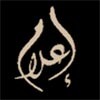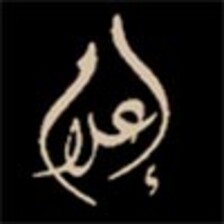I'lam - Media Center for Palestinians in Israel 8 February 2006

Also in this Briefing
The distinguished journalist and literary critic Anton Shalhat was this month banned from leaving Israel until the end of the year, on the advice of the Shin Bet domestic security service.
A year-long travel ban was issued on January 17, following the approval of two temporary orders - the first signed by Prime Minister Ariel Sharon and the second by an Interior Ministry official - in late December. An accompanying letter from the Interior Ministry says that the decision to bar Mr Shalhat from leaving the country is based on classified information that he may “harm the security of the state”.
There are several reasons for being deeply concerned about Israel’s treatment of 59-year-old Mr Shalhat, who is also a board member of I’lam.
The first is that the travel ban has been approved using emergency regulations that date back to the time of the British Mandate. The measures were passed in a very different era, in the 1930s and early 1940s, before the drafting of modern human rights law such as the UN Declaration of Human Rights, and in different circumstances, when the British empire was trying to repress an incipient ethnic war between Palestine’s Jews and Arabs, a conflict largely of Britain’s making.
It is a stain on Israel’s democratic pretensions that these emergency measures remain on the country’s statute books, unrepealed after more than half a century. There is probably little that can be done to appeal the order. Apparently in the view of the courts, the emergency regulations override the small body of civil rights legislation Israel has passed, such the Basic Law on Human Dignity and Liberty.
The second related concern is in the way the emergency regulations are applied: almost exclusively against Arab citizens and without the security services’ need to produce concrete evidence that can be challenged by the accused or even tell him what he is suspected of. As Marwan Dalal of the Adalah legal centre for the Arab minority, which represents My Shalhat, points out, he is being denied the due process of law.
This is the kind of treatment familiar to Palestinians in the Occupied Territories. It is inexcusable when Israel uses “administrative detentions” against Palestinians living under occupation; and it is equally so when it employs the same tactics against its citizens. Israel appears to believe it is still in a state of war against its own Arab populaton.
The third concern is that Mr Shalhat’s treatment is only the lastest, and most high-profile, case in a long line of recent abuses of Arab journalists inside Israel. According to a report in Haaretz, Shin Bet sources claim they have “a concrete concern that Shalhat would take advantage of his trip abroad to contact hostile persons and carry out acts that could harm state security”. This seems strange as his lawyers say he had no plans to travel when the order was issued.
It does, however, fit more persuasively into a campaign of intimidation of senior Arab journalists that has carried on for several years. Last year I’lam documented the persecution by the Shin Bet of four journalists who were questioned over their professional relationships with journalists in the Arab world. Interrogations have included demands for the journalists to stop publishing material written by other journalists the Shin Bet does not like, and threats of criminal prosecution.
Other regular indignities faced by Arab journalists include: being arrested or beaten by security officials while performing their work; being refused permission to board aircraft as part of press delegations; being subjected to unnecessary and humiliating searches at official events; and being refused work permits by the Government Press Office and interviews by government officials and ministers.
The fourth concern is the failure of Israel’s Jewish media, and the media unions, to speak out at the treatment of Mr Shalhat and other Arab journalists. The consensus of silence from the Hebrew media has been shaming. Rather than blindly accepting the Shin Bet’s secret, one-size-fits-all “security” arguments, the Israeli media should remember that the job of journalism is to keep a critical distance and to monitor the abuse of power.
For those who refuse to believe that the Shin Bet might exploit its power it is worth remembering another recent case when this kind of travel ban was used. Exactly four years ago, on the advice of the Shin Bet, the Interior Ministry issued the first of several orders banning the leader of the Islamic Movement, Sheikh Raed Salah, from leaving the country. In May 2003 he was arrested on charges that included meeting an enemy agent. Much later, and after a lengthy trial, the state dropped all the main charges and agreed to a plea bargain in which he admitted only financial misdealings.
Contact Ilam on 04 600 1370; and Adalah on 04 950 1610
Related Links


